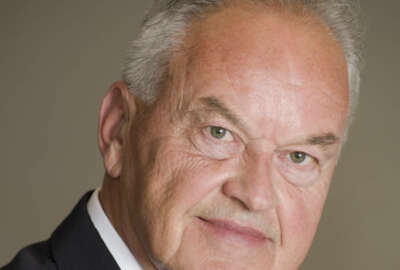
Fireproofing your TSP from the next president
Has the upcoming election got you worrying about your financial nest egg? Senior Correspondent Mike Causey says lots of federal workers are nervous and looking for...
Break out your turban and crystal ball. The one that has helped you consistently make the right choices over the years. Now, here’s the question that could have a major impact on when you can retire and/or how well you will live after you trade in a biweekly paycheck for a much smaller monthly annuity. The question:
What impact will our next president have on the economy? Global, national, local and yours. Should you buy or sell if you-know-who (the candidate you like least) wins? If you see or sense trouble ahead, should you sell BEFORE the election and move from stocks into something safe, like special Treasury securities in the G-fund? Or should you wait a couple of weeks? And what should you wait for?
Ask CB (Crystal Ball) what the American and world economy will look like if Hillary Clinton or Donald Trump is elected. Good question, because we know one of them will be. We just don’t know which one. Or what his/her election will mean to our retirement plans. The stock market will certainly react, but which way? Up or down? And whichever way it goes, how long will the good-times-bad-times last? What will the economy look like in six months, a year, or four years from now? Don’t know? Welcome to the club! No matter how politically savvy we think we are, this time last year few of us predicted that Donald Trump would be the GOP nominee. Or that Bernie Sanders would be running almost neck-and-neck with former Secretary of State Hillary Clinton almost up to the Philadelphia convention.
Military benefits questions? Chat with DHA Deputy Director, Capt. Edward Simmer Aug. 10 at 11 a.m.
Regardless of who wins the Nov. 8 election, things are going to change. Maybe for the better. Maybe not. The stock market could soar or be sore. The next president’s first close encounter with a hostile major power is likely to make the stock markets nervous. An action of a friendly power (like the U.K. voting to leave the European Union) may not rattle the stock markets. But the Brexit vote did frighten lots of federal investors who jumped into what they felt was the “safety” of the Treasury securities G-fund “until things get better.” They did, meaning people who left, then came back to the C, S and I funds sold low and bought high.
For people who get out of the market anticipating trouble, the biggest problem is when to go back. In the case of feds in the Thrift Savings Plan, do you take cover in the G-fund until things get better? Then, when is “better”? And what is the cost of coming back to the C, S and I stock index funds when they are up? Who would have guessed that we the people, as Republicans, Democrats or Independents would pick (or wind up with) two candidates with the lowest favorability ratings ever.
More Commentary
So what about your TSP, your retirement nest egg? Allan S. Roth, says its simple: “My advice,” he says, is “do nothing!” Roth writes a column for AARP, frequently talks about financial matters on network TV and in the Wall Street Journal. Last month, when many were sweating the Brexit vote to leave the European Union, Roth told this column that he was sticking with European stocks even as TSP investors were moving $1.8 billion out of the TSP’s U.S. and international stock funds (the C, S and I funds) into the super-safe G-fund.
In a recent Wall Street Journal column, Roth said this particular election has many voters on edge. And that “with such strong feelings of fear of at least one of the candidates and distrust of both, instinct” kicks in and makes investors seek safety “until the uncertainty is removed.” But when it comes to investing, Roth says, “Instinct is often wrong.”
There are times, and this may be one of them, when the old listen-to-your-gut rule isn’t golden.
Nearly Useless Factoid
Smokey the Bear’s name and image are protect by the Smokey Bear Act of 1952.
Source: Wikipedia
Copyright © 2025 Federal News Network. All rights reserved. This website is not intended for users located within the European Economic Area.
Mike Causey is senior correspondent for Federal News Network and writes his daily Federal Report column on federal employees’ pay, benefits and retirement.
Follow @mcauseyWFED




